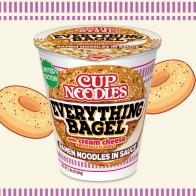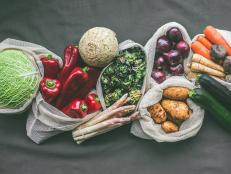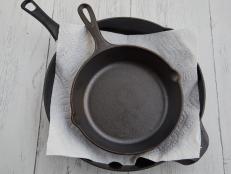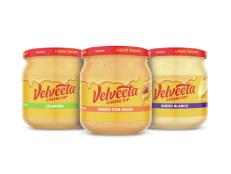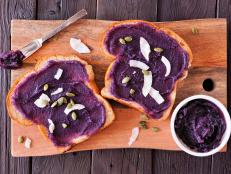Cheese Buying Tips

With hundreds of cheeses now available at the grocery store and in cheese shops, buying cheese can be downright intimidating. But rather than approaching the cheese counter with dread, think of buying cheese as a fun adventure. That said, if you live near a cheese shop or a store with a staffed cheese counter, the chances of buying unfamiliar cheeses that you will like is greater since you can usually taste the cheeses before you buy them. Even though these types of stores tend to be more expensive, the extra couple of dollars are usually worth it because of the personal service. But if you don't live near a well-stocked cheese store, just follow these simple guidelines. You'll never be nervous about buying cheese again.
Ask yourself a few questions:
- Do you usually like soft, creamy cheeses or firmer ones? Or both?
- Do you like strong cheeses?
- Do you like salty and/or blue cheeses?
If you have a preference within these cheese "camps," then you're already on your way to selecting cheeses you're probably going to like. If you don't, then start with cheeses that you're familiar with. Eventually, you'll begin to branch out. Remember, in the big sea of cheeses, very few are all that scary.
- Be adventurous. Don't buy the cheese that you always get. Instead, choose a cheese that looks similar to the one you know you like. Sure, it will taste different, but usually cheeses that look similar have similar flavor profiles. For example, if you like Havarti, then choose Monterey Jack or mozzarella. If you like aged cheddar, then choose an aged gouda. And, if you like Parmigiano-Reggiano, then choose aged Asiago instead.
- Look for flavor cues on the package. While not every package has these, those that do will feature words like creamy, soft, tangy, sharp, robust and aged. These are indicators of the style of cheese and its flavor profile.
- Touch the cheese package. If you like creamy cheeses and the cheese feels very firm to the touch, then move on.
- When choosing cheeses, it's actually helpful to consider the style of food you like in general. If you like big, bold, spicy flavors, then you're likely to enjoy stronger flavored cheeses such as aged cheddars, Gruyère, spiced cheeses and maybe blue cheeses. If you generally like milder flavors, then go for milder cheeses such as Colby, mozzarella, young Brie, fresh goat cheese and American or Danish Havarti.
- Unless you're entertaining, buy the smallest quantities of cheese that you can. This is an affordable way to learn about unfamiliar cheeses. Also, it will ensure that the cheese won't go to waste since there probably won't be any cheese leftover.
- Unlike some foods, very often quality and price equal each other in the cheese world. This means that usually, though not always, the more expensive cheeses are indeed the best tasting ones. This means that you should try and buy the best cheeses that you can afford.
Written by Laura Werlin, www.laurawerlin.com, author of Laura Werlin's Cheese Essentials.














